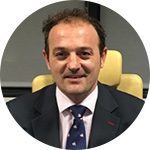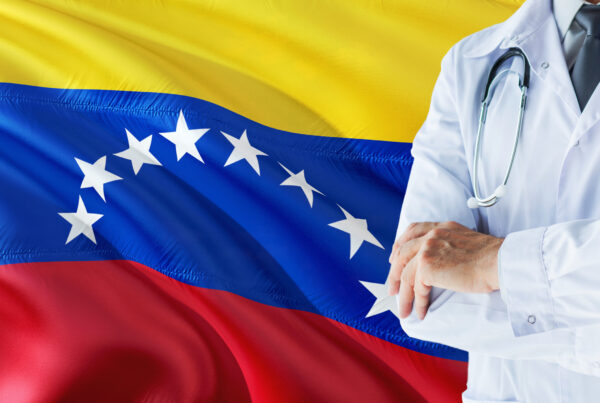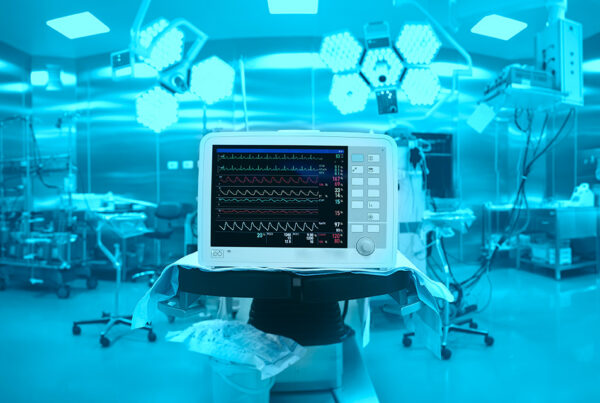
We recently had a conversation with Juan Carlos Esquivel Aguilar, Chief Officer of the Interventional Segment for Latin America at Becton Dickinson (BD)*, who, two years on from the start of the pandemic, tells us about the challenges and lessons that the medical device industry has experienced in Latin America, particularly at BD.
Q: BD is a company with more than 120 years’ experience in the medical device market and is recognized as one of the most stable companies in that market. It has been present in great discoveries and technological advances over the years. What challenges did BD have to face during the pandemic?
A: BD is a company with a long history in the medical device market, and we have always been drivers of development in the industry, but this time its challenge, besides continuing to maintain an entire range of solutions, was to launch a product that would meet all the quality requirements and standards for rapid diagnosis (under 20 minutes) in less than 6 months. This meant acting to meet the needs of the whole world, and to make COVID tests available in record time, while simultaneously having to meet the needs of our employees, especially at production plants, without neglecting the needs of patients and customers. Also, and above all, coming up with a business strategy consistent with the situation of huge uncertainty that everyone thought would be over in 15 days.
Thanks to our heavy investment in R&D, we managed to launch onto the market the “BD Veritor,” a machine for rapid diagnostic tests that has been helping decentralize medical care, opening up space at hospitals for severe cases.
Q: What lessons has BD taken from the last two years?
A: Technology has passed through us without us realizing it. COVID passports, real-time information from databases, sales strategies and communication with customers via videocalls, and training programs with virtual-reality devices that in the months leading up to the pandemic formed part of our 5-year plans. This industry has always very much required being physically present, so the impossibility of moving about has led us to be creative, flexible, and open to new ways of relating to customers and accompanying them without our physical presence. This new reality is something that is here to stay, and it’s forcing us to rethink our sales channels and our entire commercial strategy. But we have also learned a lot in terms of the relationship with our employees, and we’ve discovered that by being flexible we generate greater commitment as a community, and we can help our employees at difficult times without this having negative implications for our business. At BD we have volunteering programs that have been very successfully implemented during the pandemic, and they are still ongoing because we believe they form part of our mission as a company. Lastly, the pandemic taught us we have to work collaboratively with other businesses in the industry and share key information in order to grow. We learned that the only way to recovery is by working elbow-to-elbow as a community, and that that is achievable while maintaining business independence.
Q: What strategies will BD carry on developing to remain among the world’s top 5 medical device companies?
A: BD is always trying to help and to lower the care load at health centers by developing alternative and increasingly effective systems. While we are looking toward health sector trends, such as homecare and telemedicine, we are also directing our efforts toward our 2025 strategy, which aims to grow through category innovation; the simplification of our portfolio to continue being a reliable partner for our customers, and empowerment for our talents, providing streamlined decision making. This way, we hope to help make health care available in many spaces—wherever patients are, with a test and an application, for example—and for them to have the same information they would receive if they went to the health center. That is the future of technology applied to health, which will help society to request hospital resources only in cases of extreme necessity or whenever a specific medical action is required, such as surgery or intervention with specialized instruments. At BD, and this is something we are also seeing in the industry as a whole, we are working to make patients more and more independent and autonomous, with an emphasis on telehealth, early diagnosis, preventive health care, and enhancements in the processes of self-care to avoid arriving at hospital in conditions of extreme need. This will make it possible to improve care, improve results at hospitals, and rein in public health costs.
Lastly, we are working heavily on analyzing available data and generating new data that will help us make decisions based on quality information.
*Becton Dickinson (BD) is among the oldest established multinationals in the medical device industry. It has a third of its operations in Latin America and is one of the companies that invest most in R&D.



